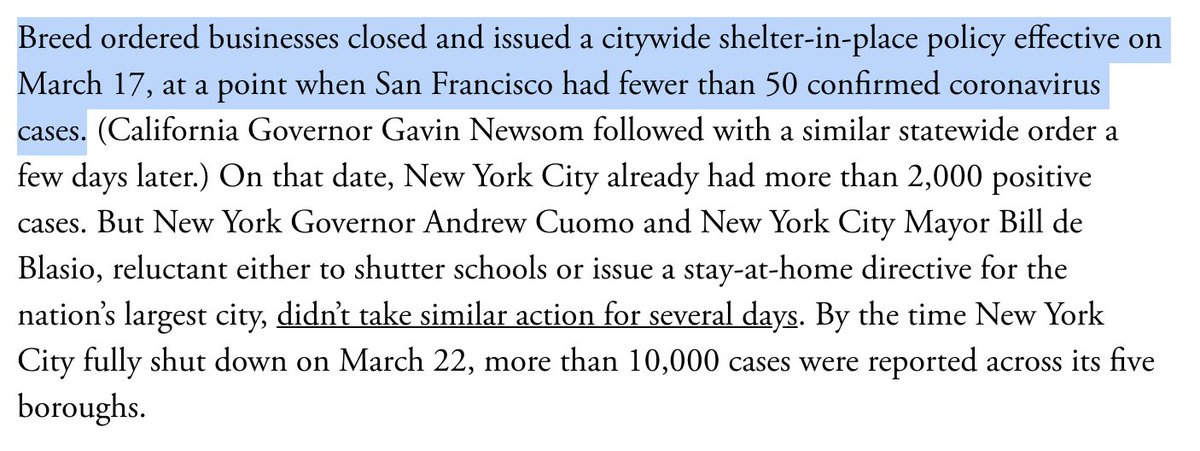these two articles on women leaders have been widely shared, but perhaps omit a key point...
these leaders have been risk-averse. they forced early closures & thereby helped flatten the curve.
women tend to be more risk-averse.
#40b676373dec">https://www.forbes.com/sites/avivahwittenbergcox/2020/04/13/what-do-countries-with-the-best-coronavirus-reponses-have-in-common-women-leaders/ #40b676373dec
https://www.forbes.com/sites/avi... href=" https://www.theatlantic.com/politics/archive/2020/04/coronavirus-san-francisco-london-breed/609808/">https://www.theatlantic.com/politics/...
these leaders have been risk-averse. they forced early closures & thereby helped flatten the curve.
women tend to be more risk-averse.
#40b676373dec">https://www.forbes.com/sites/avivahwittenbergcox/2020/04/13/what-do-countries-with-the-best-coronavirus-reponses-have-in-common-women-leaders/ #40b676373dec
individual leadership is given far too much attention, relative to structure - generally
structure matters: wealth, state capacity, health systems, experience of sars
controlling for that, indiv leadership matters in terms of early closures (which have reduced the death count).
structure matters: wealth, state capacity, health systems, experience of sars
controlling for that, indiv leadership matters in terms of early closures (which have reduced the death count).
the funny (perhaps not & #39;haha& #39;) thing is that we& #39;ve often treated women& #39;s aversion to risk as a problem to be fixed
but now we see that if you live in a jurisdiction with a risk-averse leader, you have a much higher chance of survival*.
*controlling for all the structural stuff.
but now we see that if you live in a jurisdiction with a risk-averse leader, you have a much higher chance of survival*.
*controlling for all the structural stuff.
addendum: https://twitter.com/_alice_evans/status/1250126835607797760?s=20">https://twitter.com/_alice_ev...
Curious?
Follow @ruthcarlitz, as she& #39;s now investigating the relationship between gender & early closures across the USA.
Follow @ruthcarlitz, as she& #39;s now investigating the relationship between gender & early closures across the USA.

 Read on Twitter
Read on Twitter https://www.theatlantic.com/politics/..." title="these two articles on women leaders have been widely shared, but perhaps omit a key point...these leaders have been risk-averse. they forced early closures & thereby helped flatten the curve. women tend to be more risk-averse. https://www.forbes.com/sites/avi... href=" https://www.theatlantic.com/politics/archive/2020/04/coronavirus-san-francisco-london-breed/609808/">https://www.theatlantic.com/politics/..." class="img-responsive" style="max-width:100%;"/>
https://www.theatlantic.com/politics/..." title="these two articles on women leaders have been widely shared, but perhaps omit a key point...these leaders have been risk-averse. they forced early closures & thereby helped flatten the curve. women tend to be more risk-averse. https://www.forbes.com/sites/avi... href=" https://www.theatlantic.com/politics/archive/2020/04/coronavirus-san-francisco-london-breed/609808/">https://www.theatlantic.com/politics/..." class="img-responsive" style="max-width:100%;"/>



